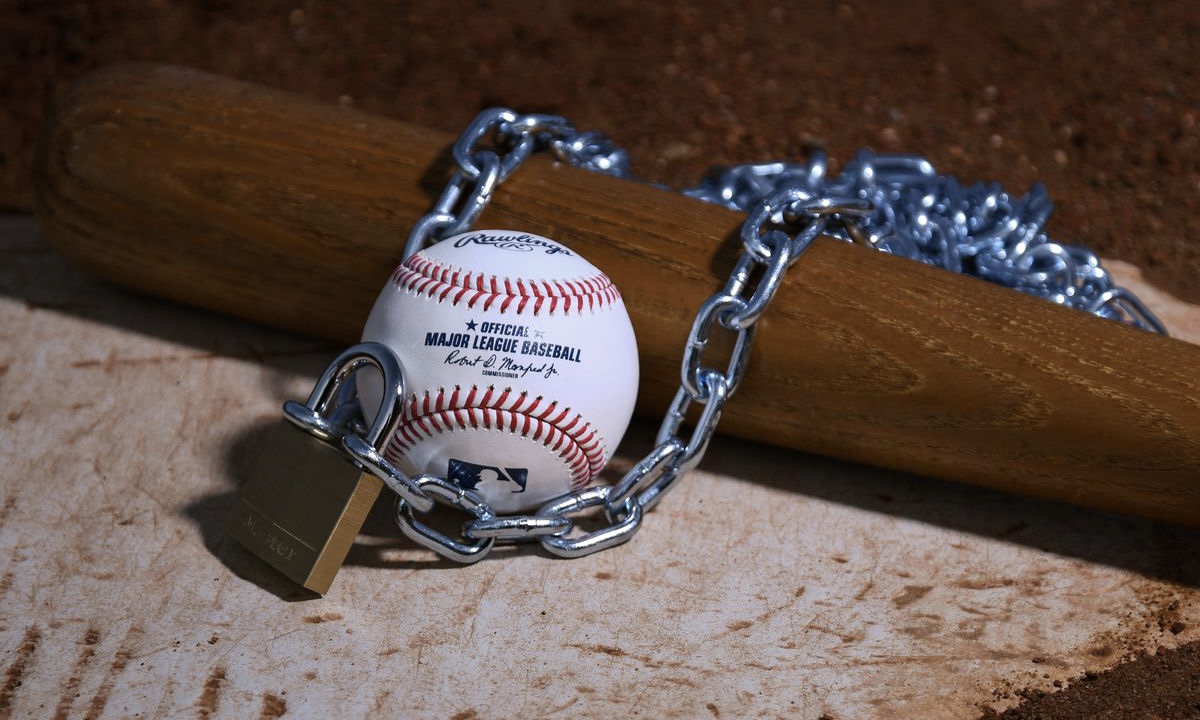Baseball fans worldwide agree: Major League Baseball has plenty of explaining to do. From the seemingly non-existent progression of the lockout, to the treatment of minor league players, to the devastating opioid crisis allegations, baseball’s growing troubles stem from avoidable crises away from the diamond itself. Each issue deserves its moment under the sun, but the lingering lockout dominates the conversation at every turn.
The Lockout
It’s more than just a billionaires versus millionaires issue; the owners and their appointed lackey Rob Manfred lost sight of the beauty of the game. Gone are the days of ”for the love of the game.”
ESPN’s Jeff Passan, who’s been at the forefront of the negotiation process’s coverage, isn’t quite sure what the endgame eventually is, either. Spring Training’s delay forces unfortunate thoughts of inevitability into our minds as it pertains to Opening Day, but with significant talks between representatives of each side in Jupiter, Florida this week, hope remains for a timely first pitch.
Treatment of Minor League Players
Major League Baseball’s direct authority, but indirect neglect is a firecracker topic in negotiations. But not every Major League team owns it’s affiliates. Ridiculously low and unlivable wages, poor housing conditions, and insufficient means to make ends meet in the offseason isn’t new. And while owners and the league pushes toward the minimization of minor league baseball, the MLBPA remains steadfast in it’s desire to improve quality of life.
It’s hardly asking for ”too much”, but major leaguers have seen the detriment firsthand in their own developmental track.
There have been no specific discussions on the conditions of the minor leagues during these lockout negotiations, other than that both sides seem to agree that younger players that reach the Major Leagues deserve better pay. That still doesn’t address the main issue at hand for minor league players that have been in the game for a long time like Jack Kruger. Major League Baseball announced last year they would pay for housing; a major step in the right direction, but not a stopping point.
Possible Opioid Crisis In MLB
The trial of Eric Kay, the Angels staffer convicted of supplying fentanyl-laced opiates that led to the tragic death of Tyler Skaggs, concluded last week. Kay, guilty on both counts tried, faces a minimum of 20 years in prison.
Five players from the Angels organization at the time of Skaggs’ death testified and admitted their personal use of opioids for painkillers in the clubhouse and dugout. The trial brings to light a tremendous cause for concern that a crisis does not begin and end with solely the Los Angeles Angels organization.
Where does this all lead?
The lockout will end, minor league players will still play, and life will, unfortunately, move on past the late Tyler Skaggs. However, baseball has an accountability problem. What tremendous tragedy becomes inevitable based on Major League Baseball’s inability to self-reflect?
Baseball is more than a bat and a ball. For many of us, it’s another member of our family. But baseball’s family is weak right now. How it supports itself over the coming hours, days, weeks and years impacts our love of the game for an eternity.







